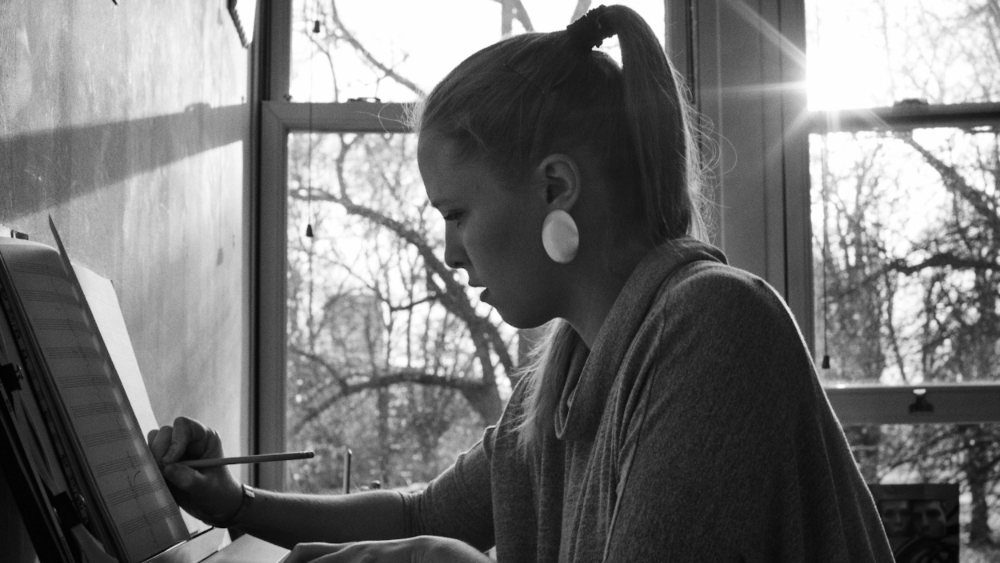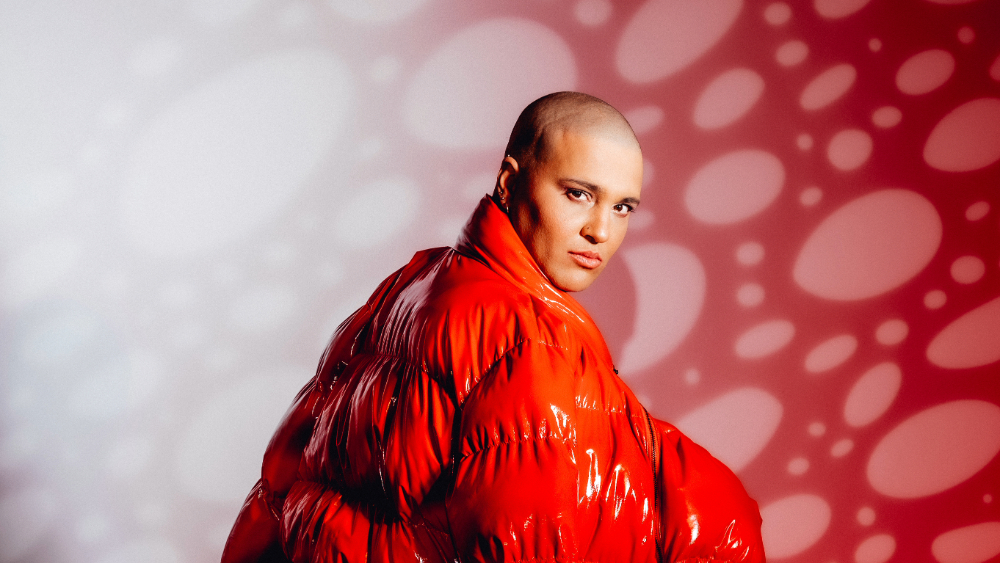Royal Albert Hall, August 2021: Julius Eastman's quietly epic piece The Holy Presence of Joan d'Arc, reimagined for string orchestra from its original cello ensemble version, is slowly unfurling around this historic venue. It stretches and shakes; its kaleidoscopic melodies gently twisting. This is the first time the piece has been played at BBC Proms — and the ensemble performing it are making their debut appearance at the renowned concert series too.
The performers in question are Manchester Collective (MC), an inventive ensemble comprising musicians from the namesake city. As well as commissioning new music by the likes of Edmund Finnis and bringing renewed context to pieces such as Dobrinka Tabakova's galant-inspired Suite in Old Style, MC became a Southbank Centre Resident Artist in 2022 before triumphing in the ‘Ensemble’ category at the 2023 Royal Philharmonic Society Awards.
MC also champion neglected contemporary composers like the late Julius, whose critical role in minimalism (which paved the way for the likes of Steve Reich and Philip Glass) and creative talents were overshadowed by his challenging personal circumstances. This commitment is evidently having an impact: having been given the appropriate exposure by MC in 2021, Julius' work was played by the BBC Symphony Orchestra during this summer’s Proms.
The work of Eastman, Finnis and Tabakova continues to be important to MC, with the ensemble set to perform both Tabakova's 2002 string trio Insight and Finnis' meditative 2021 String Quartet No 2 during tonight’s PRS Presents at LSO St Luke's in London (25 September). When planning the programme for what will be the first-ever classical edition of Presents, the first port of call for MC was PRS's own extensive composer list.
'We've selected composers who are, in the main, PRS members,' MC Artistic Director Rakhi Singh tells M. 'They are all very different musical personalities, but there's a thread weaving through them.'
This curatorial urge is MC's USP: surprisingly, it’s unusual for contemporary music to be presented in this mixtape style. A contemporary piece is often shoved to the end of a classical programme, typically after the Haydn symphony most people have bought a ticket for, or wedged between historic composers with whom their music bears little resemblance. MC, however, proactively seek out the connections between individuals and themes in contemporary classical music.
'Storytelling is really important,' Co-Artistic Director Jasmin Kent Rodgman explains. 'When we play canonic repertoire, we always think about how it speaks to the here and now; how it interacts with living composers; how it is relevant. That's true whether it's Eastman or Bach — and that's what makes Manchester Collective special.'
'Storytelling is really important.' - Manchester Collective's Jasmin Kent Rodgman
As their name suggests, MC primarily consist of musicians who live in Manchester, though its membership is fluid depending on the requirements of the repertoire and individual season programmes. This year, for example, pioneering pianist Zubin Kanga is bringing his particular electronic touch. But although the personnel may vary, the style remains consistent.
'As with acting, every musician has the same basic palette to choose from. It's how they use the colours,' explains Rakhi. 'Our sound comes from a combination of the repertoire and the voices that come through the music. It then becomes more than the sum of its parts, because we also consider the environment and the presentation.'
That presentation is significantly enhanced by Rakhi herself, who often talks directly to the audience. While this is no longer an anomaly in classical music, there are few instrumentalists who are comfortable doing it — larger-scale events often resort to hiring specific presenters, which can change the look and feel of a performance. MC concerts are therefore inherently intimate, wrapped in an informality that helps to make the music more accessible.
Playing scores in the presence of a living composer — rather than being watched over by a bust or a painting, as is the case in many classical venues — requires a flexible, collaborative approach. It helps, then, that many members of the collective, including Jasmin and Rakhi, are composers themselves, while the group also commission new work.
'Even in our very first season when we hardly had any money, we commissioned a song cycle for baritone and string quartet,' Rakhi recalls. 'Contemporary music is at our core.'
Jocelyn Campbell’s 3am, a work the group commissioned and recently premiered at Spitalfields Music Festival, will also form part of the programme at tonight’s Presents.
'It's really wonderful to be able to perform things more than once,' says Jasmin. 'There are a lot of commissions that are done once and then never see the light of day again. Part of MC's culture is to bring composers into the fold and develop an ongoing relationship. It's so interesting to come back to a new piece and see how the interpretation has evolved, months or years later.'
'Contemporary music is at our core.' - Manchester Collective's Rakhi Singh
Another key MC skill is their ability to creatively adapt a typical instrumental format. For example, when the shape-shifting collective is a string orchestra, Rakhi and Jasmin will pick out different iterations within the group, such as a string quartet and trio. At Presents, there will be a set of such duets for Errollyn Wallen’s Five Postcards for Violin and Viola. 'Five Postcards… has different flavours and lots of personality, as you would expect from Errollyn,' Rakhi says of the newly appointed Master of the King's Music.
Further contrast will be provided this evening as acoustic and digital soundworlds collide during Anna Meredith's compact Tuggemo, scored for violin, viola, cello and electronics. Describing the musical character that is formed in this piece through repeated, extended glissandi, Rakhi notes that MC's rendition will have ample ‘groove and elasticity’.
MC’s final member is the space in which they play. 'Whether it's a small room or the Royal Albert Hall, we're very aware of how sound interacts with the space,' Rakhi explains. 'We think about how different pieces feel; how the sound is sent from the stage.'
This collective concept extends across all aspects of the ensemble's identity, from repertoire to management. 'It's our curiosity to do things differently that helps mark us out,' Jasmin adds. 'Sometimes babies have to grow into their names — we're growing into what it means to be Manchester Collective.'





